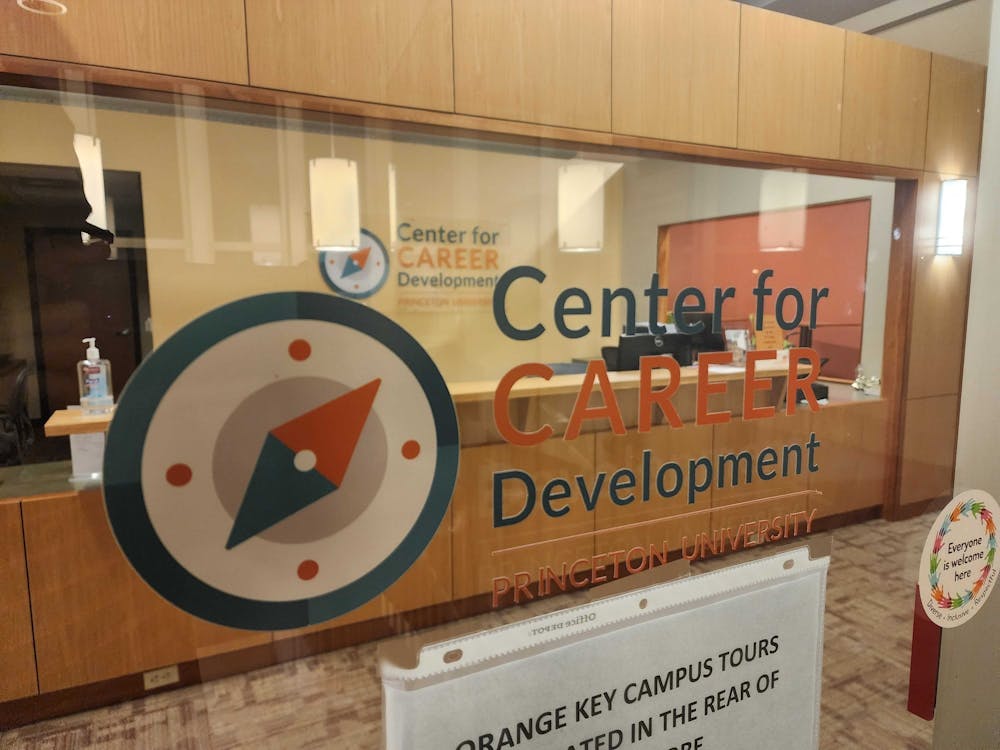As I was wrapping up my internship experience in July, I began looking into opportunities for the next summer. I thought I had begun the recruitment process quite early, but I soon realized that this was far from the case. In part, this is due to the lack of clear communication from the University, as it underemphasizes the importance of getting started early when it comes to recruiting. As a result, underclass students — particularly those without pre-existing connections and a wealth of resources — are left in the dark until it’s too late.
Princeton’s Center for Career Development (CCD) is an excellent resource. However, it is under-promoting the resources it has and under-communicating with students about recruiting timelines and tips and, as a result, not fully meeting its role as an equalizer in the recruiting process.
Throughout sophomore year, I have always had the impression and (mis)conception that recruiting for junior summer internship positions happens in the fall of junior year. I couldn’t have been more wrong: the recruitment cycle for private equity firms to which I wanted to apply had long since passed. In fact, the earliest recruitment deadline (namely Kohlberg Kravis Roberts & Co.) had passed the early spring of my sophomore year — Feb. 28, to be exact — which is a staggering 1.5 years before the start of the internship.
After realizing that my chances of securing a private equity internship for summer 2023 had all but passed, I decided to shift gears and look into investment banking (IB) and consulting. However, most boutique IB firms like Evercore had closed recruiting around late spring. The application for full service banks like Goldman Sachs, J.P. Morgan, and Morgan Stanley, on the other hand, are still open on their official websites and have tentative deadlines in late September. But, due to the rolling nature of their hiring processes, the majority of their intern classes would have been filled by late July. For example, by the time I checked Morgan Stanley’s internship websites in July, all U.S. positions for their IB division were gone.
Why am I so late? I pondered. Why did I miss the timeline? At first I thought that I was the only one who missed these deadlines, but after speaking with more alumni and learning about their recruitment timelines, I discovered that I am far from the only student at the University who was caught off guard by the application timeline. The problem seems to have affected many Princeton students who suffer from a lack of easily accessible information.
What is at the root of this problem? Years ago, the recruiting season used to be between July and December. But recently, as the fight for top talent becomes more competitive, many firms — particularly firms in IB with fast turnover rates — have pushed their recruiting windows earlier, year on year. And the lack of information available on when the companies’ timelines for specific positions causes many to miss the opportunities every recruiting cycle.
As a direct result of this information lag, instead of dedicating all of my time to preparing for interviews in one industry, I have to split my time preparing for multiple industries, since technical questions for various industries are completely different. This is very stressful and very ineffective.
Looking back, I wish I’d been told by a Residential College Advisor (RCA) or a Peer Academic Advisor (PAA) that the recruiting process is not comparable to the college application process at all. Instead of applying late for a position, 100 percent prepared for the interviews, I should be applying early, even if I’m 50 percent prepared, because many firms adhere to the “first come, first served” principle. Furthermore, I wish I’d been told how important and helpful it is to start networking with alumni early on — networking allowed me to gain so much insight into various industries, better understand which professions are a fit for me, and determine which Princeton courses I should take to facilitate my career progression. Instead, I began scrambling to do so two years into my college experience.

But most of all, I wish someone had told me to visit Princeton’s Center for Career Development — one of the University's most underutilized resources.
Over the summer, I made three appointments with the CCD, and each time I received excellent advice and help. Although I had always known of its existence through the emails I received, it was only after listening to an alumnus’s recommendation that I turned to the career center as a junior. Before that, I wasn’t aware that the consultants there can provide help through all steps of the recruiting process, from reviewing resumes, to practicing mock interviews and evaluating offers.
The CCD ought to promote its presence and advertise its services better, so students can begin to plan for their future career path as soon as possible without encountering detours. For example, the CCD can collaborate with RCAs and PAAs to help them reach underclassmen right from the beginning. Simply letting the students know that there exists a full list of guides for students in every grade and on many topics ranging from resumes to networking to interviews, and additional resources available when it comes to prepping for quantitative analyst, software engineering, and consulting roles — resources that I didn’t know existed until speaking with a CCD consultant — will be incredibly beneficial to the students’ career planning.
Kelsey Ji is a junior from Cambridge, Mass. majoring in Operations Research and Financial Engineering. She can be reached at xingej@princeton.edu.









